Choosing the right CRM software can be a daunting task with the market being flooded with hundreds of CRM. While some practice being a one-stop solution for everything, many CRMs focus to cater a specific niche. Today, we put the two complete CRM Solutions head-to-head, as we take a deeper look into the offerings by Salesforce CRM with Zoho CRM.
Salesforce CRM, based in California, started in 1999 as a CRM tool to address the lack of customer management tools in the then-popular ERP systems. Quickly growing into popularity, taking the industry by storm with its wide array of tools made to grow the business by strengthening customer relations. Since then, Salesforce has grown into an unstoppable giant, leading the CRM market space by a huge leap.
Zoho Corporation on the other hand, despite having started in 1996, did not offer their CRM suite until 2005. Based in Chennai, India, Zoho CRM is focused on the Startup business with their affordable plans. But compete directly with Salesforce with features like Workflow and Approval Process Automation, Lead and Contact Management, analysis and forecast, and their Zia AI Assistant.
Both of them offer a range of features and capabilities to help you grow your sales, improve your customer service, and streamline your operations. But how do they compare in terms of pricing, functionality, customization, and integration? In this blog, we’ll take a closer look at various aspects of Salesforce and Zoho CRM, and help you decide which one is right for you.
At a Glance
Multi-national conglomerates make up the major customer base for the Salesforce CRM, while Zoho focuses on selling their tools to Startups with their affordable plans. Both CRMs have more in common than their differences.
- Salesforce’s Web-to-lead feature gives it an edge over the Zoho CRM for Lead and Contact Management.
- Support for complete customization of the home page, and record detail page is present in both CRMs.
- Salesforce CRM and Zoho CRM, both could use a revamp in their UI to complete with Modern UI styles.
- Settings Page in Salesforce has many more features than the Zoho CRM.
- An add-on is required for case management and Email Marketing with Zoho CRM. Salesforce has them by default.
- Salesforce’s Einstein GPT with generative AI capabilities is more advanced than Zia AI by Zoho, which is still in its early stages.
- Salesforce uses Apex Programming Language for the backend customization. Zoho CRM uses Deluge scripting language for its heavy customization.
Ease of Use
The ease of use of CRM software is an important factor to consider when choosing a solution for your business. Different CRM platforms may have different levels of complexity, customization, and accessibility, depending on your needs and preferences. Here is a brief comparison of the ease of use of Salesforce CRM and Zoho CRM, based on some online reviews and sources.
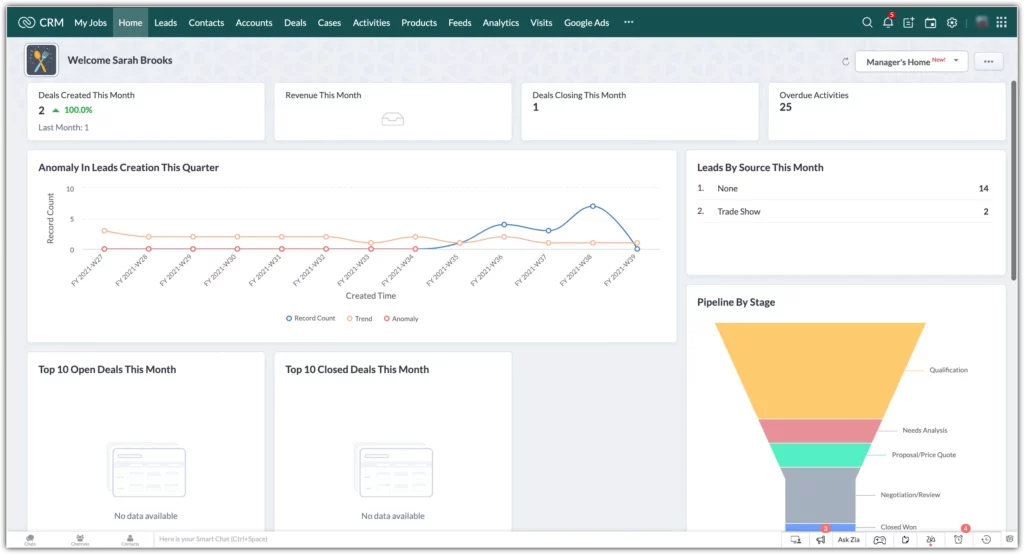
Zoho CRM comes with a simple and user-friendly interface to help you streamline your sales, marketing, and customer support activities. It has an intuitive and clean interface that makes it learn and use, even for beginners. Zoho requires little to no coding experience to customize the platform.
From importing data, designing workflows, and following customer journeys to reporting, automation, and even AI, Zoho lives up to its reputation as a solid value. However, Zoho CRM falls short when it comes to advanced CRM features like complex workflow automation and integration of generative AI throughout their platform.
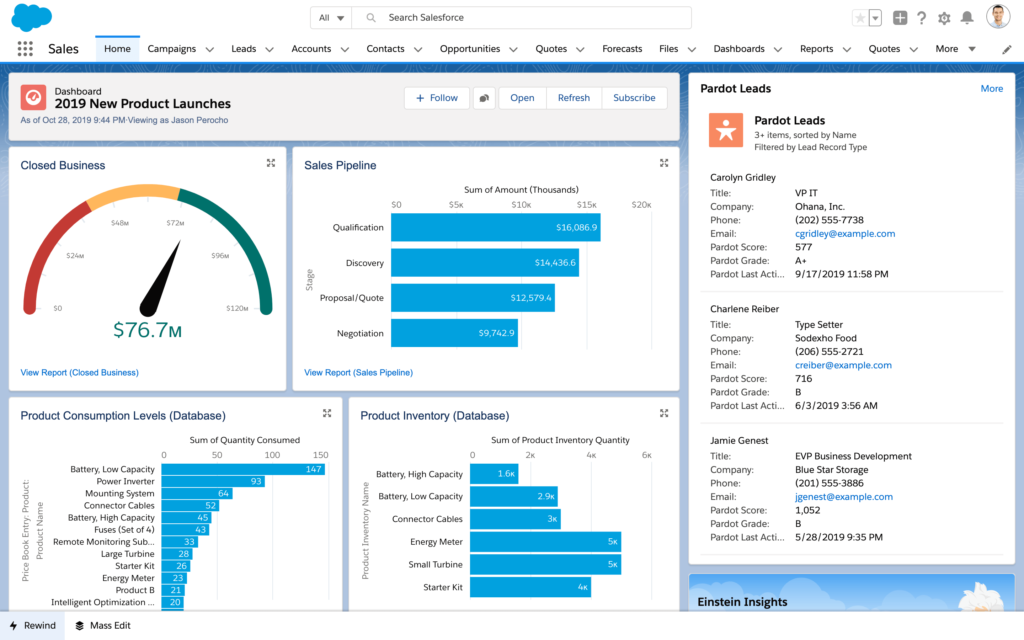
Salesforce CRM, on the other hand, is a powerful and sophisticated CRM platform that offers a range of features and capabilities to help you manage your customer relationships. However, some users may find it difficult to set up and use, especially if they are new to CRM or have limited Technical skills.
Salesforce is best suited for users with prior experience using CRM platforms or who have intermediate technical skills. Salesforce often requires developing the Apex Classes or the Web Components, to cater to the complex requirements of the business. Salesforce, though not easy to navigate around, is a powerful tool for all kinds of businesses.
Features
Both the Salesforce CRM and Zoho CRM are jam-packed with features, with new additions being made every new release. Both CRM software has come a long way from their basic functionality of storing and tracking customer data. From basic CRM features like Storing Customer Data and tracking leads to advanced features like Email Marketing and AI integration throughout their platform, these new-age CRMs have got them all.
Salesforce CRM, often credited as the “CRM Powerhouse”, has an extensive list of tools to expand the system’s capabilities to suit every business needs. But it can put a dent in your wallet. Zoho CRM, on the other hand, offers most of the same features at up to 73% lower prices.
| FEATURE CATEGORY | SALESFORCE CRM | Zoho CRM |
|---|---|---|
| Scalability | Can be scaled to large teams & is designed to handle millions of users | Scalable with 40 add-on apps tailor made for the platform |
| Customization | Extensive customization using Apex Programming Language, VisualForce, and Lightning Components | Supports Custom Modules using Deluge language, Conditional Page Layouts, Validation Rules and much more |
| App Support | More than 7000 Apps are available at Salesforce AppExchange | 1800+ extensions are available at Zoho Marketplace |
| Reporting & Analytics | Robust reporting and analytics with support for Tableau CRM | 40 Ready-to-use 2D and 3D fully customizable Analytics templates |
| Automation & Workflows | Powerful automation of every process using Flow | Upto 20 Workflow Automations per department per module |
| Integration | Integrates with a wide array of third-party apps | Can be Integrated with apps using extensions from Zoho Marketplace |
| User-Friendly | A steeper learning curve, suited for more technical users | Intuitive UI suitable for less tech-savvy users |
| AI Capabilities | Einstein GPT is the most advanced Generative AI for CRM | Zia AI by Zoho is a Generative AI Model still in its early stages |
| Support & Resources | 24×7 Support included with license and educational resources available at Trailhead | 24×7 Tech Support available at additional cost starting at $4800 |
Salesforce allows for extensive customization with the help of Apex programming language and Lightning Component, though it requires certified experts to develop the Apex Code or Web Components. Zoho allows for major customization using their UI, eliminating the need for coding knowledge. In special cases, custom modules can be developed using Zoho’s in-house Deluge Scripting Language.
AI Features
For years, Salesforce CRM and Zoho CRM have been offering AI capabilities on their platforms. Their AI models were based on Traditional AI technology, deeply embedded into many of the apps they offer in their platform. It was only recently, with the introduction of Open AI’s ChatGPT, that both have made a significant upgrade to the Generative AI Models.
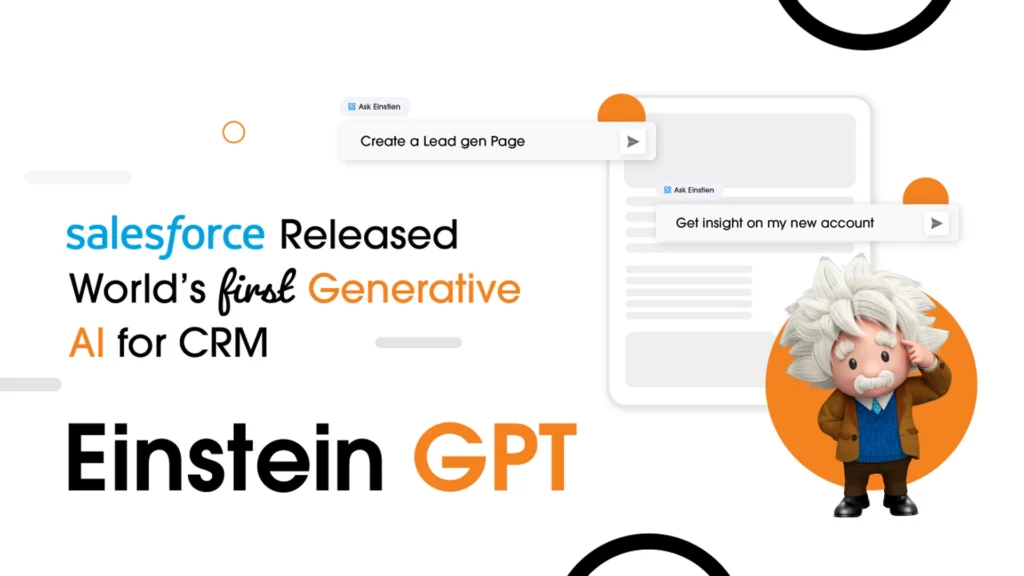
Salesforce’s Einstein AI, launched back in 2016, has long helped users with easy analytics and in-app suggestions. In May of 2023, Salesforce made a significant upgrade to its trusted AI model by upgrading it to the GPT model, dubbed Einstein GPT. Now available at additional cost. Replacing the previous version, Einstein GPT is deeply integrated into each Salesforce cloud, allowing users to use prompts to get things done.
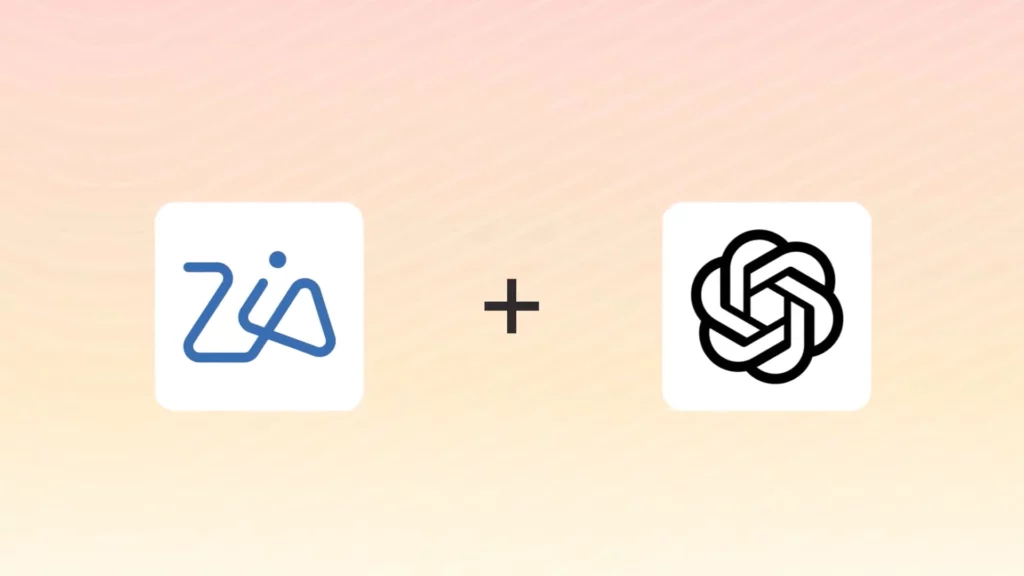
Following the footsteps of Salesforce, Zoho launched its Zia AI assistant in 2017. Zia AI received an upgrade in May of 2023 when Zoho announced the integration with Open AI. Contrary to Einstein GPT, Zia AI takes advantage of the BYOK (Bring Your Own Key) model. Requiring the user to generate a secret API key from their Open AI account, to gain GPT capabilities in individual products.
Knowledgebase & Learning
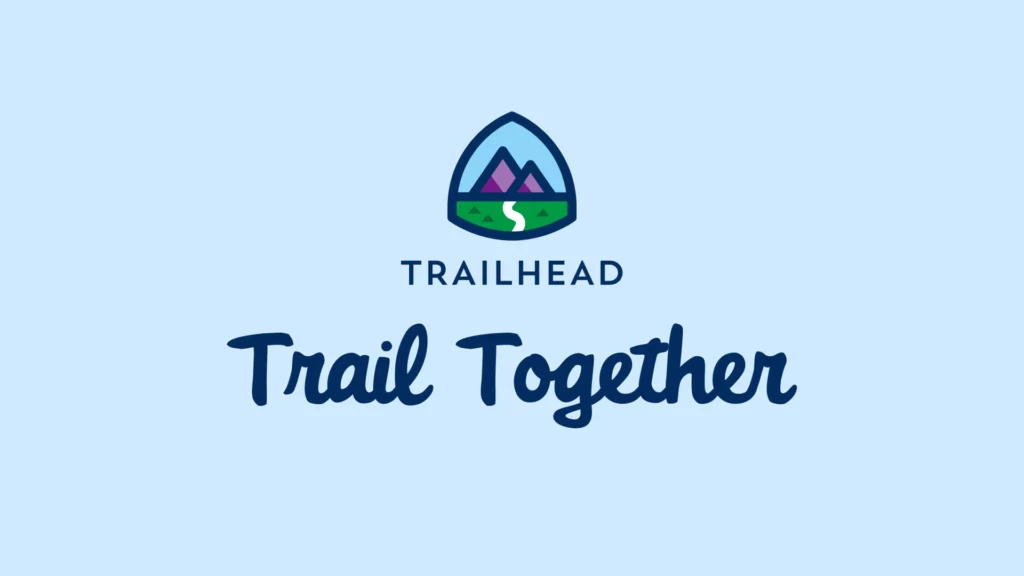
Salesforce offers Trailhead, a free online learning platform. Designed to help individuals learn all the Salesforce products with guided learning paths, known as “trails”, consisting of modules, projects, and quizzes. Salesforce also has a huge community of Trailblazers, which refers to the individuals actively using Salesforce technologies, working on the platform, and participating in regular training camps and meet-ups.
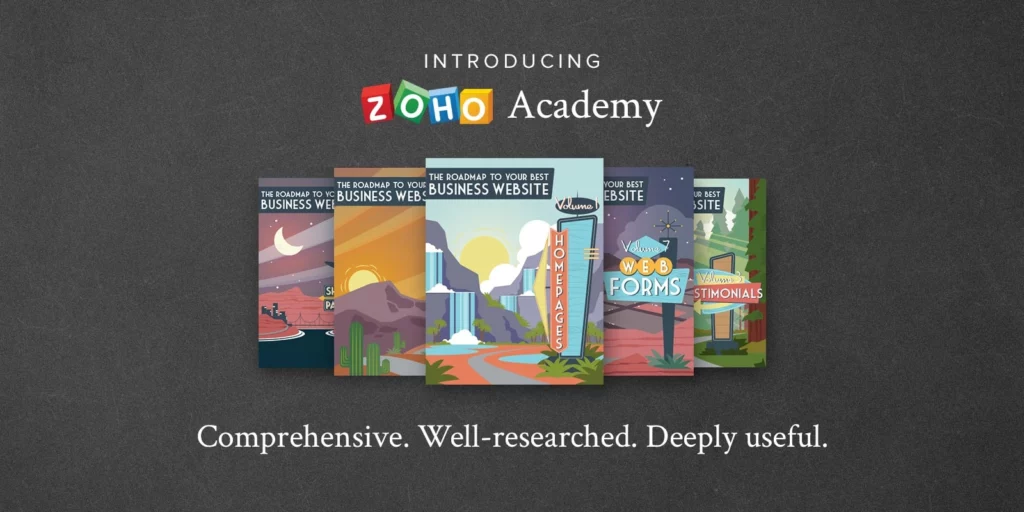
With Zoho Academy and Zoho Spark, Zoho aims to help anyone willing to learn their software. Zoho offers a range of resources such as Video Tutorials, Webinars, articles, and e-books specifically designed to help users understand, implement, and optimize their use of Zoho CRM. Zoho also has a team of dedicated certified trainers, who would fly to your office to train your employees on how to make the most out of the CRM.
Pricing
Salesforce is known to have license prices that might not be affordable for small businesses. License for Salesforce Cloud CRM starts at $25 per month for a single user, and it quickly skyrockets as you add more users to your CRM. Salesforce does not offer any free plan, but it does offer a free 30-day trial for most of its plans.
Zoho CRM is a cheap alternative to Salesforce CRM, helping you save up to a maximum of 73% on licensing fees. Zoho also has a free tier, which lets you use the basic CRM tools for up to 3 users. Zoho also has a 15-day free trial for almost all of its plans.
| LICENSE | SALESFORCE | ZOHO |
|---|---|---|
| Trial | 30 Days | 15 Days |
| Free Tools | – | $0 |
| Starter/Standard | $25 | ₹800 – ₹1750 |
| Professional | $80 – $105 | ₹750 – ₹3500 |
| Enterprise | $165 – $190 | ₹1200 – ₹5700 |
| Unlimited/Ultimate | $330 – $350 | ₹2600 – ₹3200 |
| Corporate | $4200 – $17,500 | – |
| Billing | Annually | Monthly/Annually |
Converting the prices in standard units, Zoho CRM starts at $14 compared to $25 for Salesforce. Both Salesforce and Zoho offer 24×7 support with their licenses. Zoho offers premium support with less waiting time and faster resolutions, starting at $4800.
The choice between the two hinges on your specific needs and goals. Salesforce stands out as a powerhouse, renowned for its scalability and robust feature set. And with high prices, Salesforce is well-suited for large enterprises with complex sales and marketing operations.
Zoho CRM shines as a versatile, cost-effective solution ideally suited for small to mid-size businesses looking to streamline their customer relationship management without breaking the bank. Both Salesforce CRM and Zoho CRM prove to be the top contenders in the CRM scape. Carefully assessing your organization’s requirements, budget, and scalability expectations will help you choose between the two.



